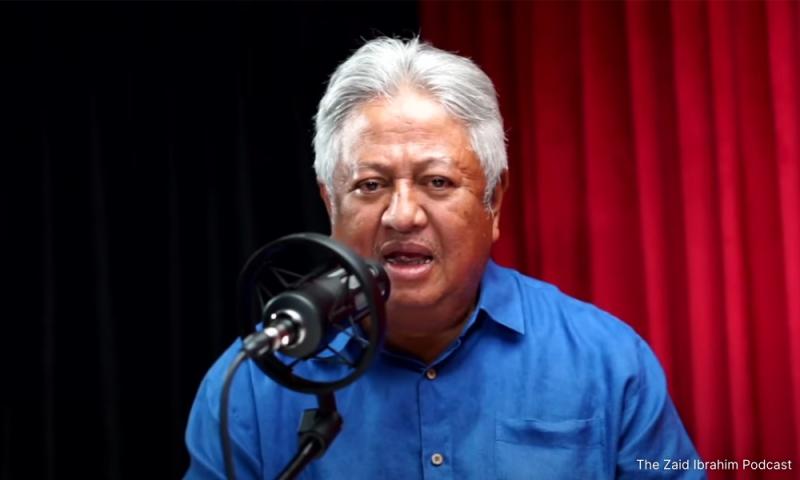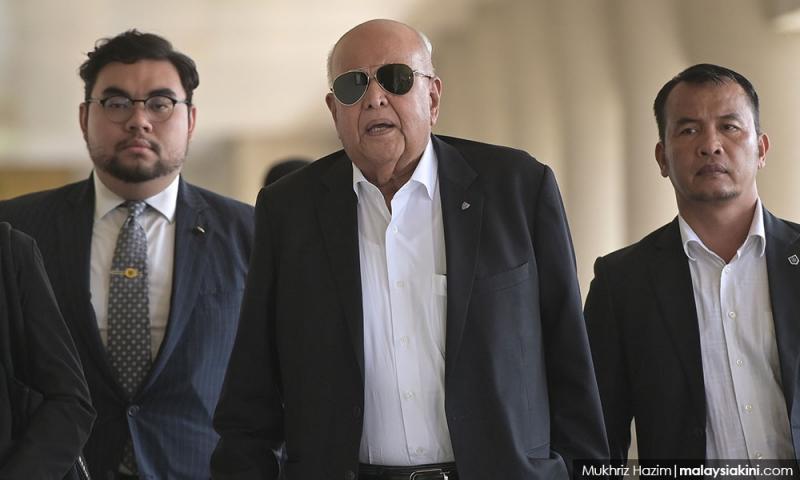Below is the opening statement of lead prosecutor Gopal Sri Ram, which was read in the Kuala Lumpur High Court this morning during the trial of Rosmah Mansor, who is accused of receiving bribes in relation to a solar energy project for schools in Sarawak.
The accused is the wife of the former prime minister (Najib Abdul Razak). She occupied no official position. However, she wielded considerable influence by reason of her overbearing nature.
She placed herself in a position where she was able to influence decisions in the public sector. The prosecution will (furnish) direct and circumstantial evidence to show that the accused solicited bribes and received gratification as alleged in the charges brought against her.
Jepak Holdings Sdn Bhd is a private limited company. At all times relevant to the charges, Saidi Abang Samsudin was the managing director and majority shareholder of Jepak.
Saidi wanted to obtain work from the federal government for his company. Specifically, he wanted a contract to carry out a solar hybrid project purportedly to benefit some 369 rural schools spread across the interior of Sarawak. Saidi sought the contract from the Ministry of Education with his partner Rayyan Radzwill Abdullah.
They approached Mahdzir Khalid, the then minister of education for the Federation of Malaysia. A meeting took place between them. It was unfruitful for Saidi. He got nowhere.
Saidi and Rayyan then approached one Aazmey Abu Talib, whom they perceived as being close to the accused's husband in order to obtain support for his (Saidi's) request for the contract.
With Aazmey's help, Saidi managed to obtain a minute (note) from the accused's husband on his letter of application supporting it. But that did not help speed up matters with the Ministry of Education.
Saidi and Rayyan were bent on getting the solar hybrid project for Jepak. Avenues of success having produced no positive result, they turned to the accused whom they managed to contact through Rizal Mansor (Rosmah's former aide).
Rizal arranged a meeting between Saidi, Rayyan and the accused. The meeting took place between January and April 2016. It was held in the accused's private residence at Jalan Langgak Duta, Kuala Lumpur.
Saidi wanted the accused's assurance that she would help Jepak. In return, Saidi was prepared to offer a large sum of money to the accused.
Evidence will be show the active role played by the accused to obtain the project for Jepak. In return, she solicited and obtained a bribe.
According to Saidi, at the 2016 meeting, the accused was shown Jepak's application bearing a minute from the accused's husband.
Saidi then made an offer of a political donation to the accused's husband as a gesture of gratitude for supporting the application.
It is of importance to note that the accused did not hold any position of responsibility in any political party at that time. The accused knew that the so-called "political donation" was meant as a bribe for her.
Payment was contingent on her using her influence to obtain the solar hybrid contract for Saidi's company. After this meeting, the accused incrementally increased the sum of political donation to RM187.5 million which works out to 15 percent of the value of RM1.25 billion.
She used Rizal to make her demands and negotiate the bribe that was to be paid to her. Initially, she wanted 17 percent of the value of the project which works out to a sum in excess of RM200 million. On Rizal's advice, she agreed to accept 15 percent.
A sham agreement was drawn up by one Lawrence Tee. The purpose of the agreement was to disguise the payment and conceal the name of the true recipient of the money. That agreement has gone missing. Nobody is certain who has it. Lawrence will testify as to its contents.
On Dec 20, 2016 after this agreement was executed, Saidi gave the accused RM5 million in cash as promised. This payment was made after the letter of award was issued to Jepak by the Ministry of Education.
The money was delivered to the accused's official residence in Putrajaya and received by her after confirming with Rizal that the sum was in fact RM5 million. The evidence on this part of the case will go to establish the first charge against the accused.
The solar contract was executed on June 20, 2017. The Ministry of Education then released a series of payments to Jepak. Later, Saidi delivered RM1.5 million in cash to the accused at her Langgak Duta home on Sept 7, 2017.
The foregoing evidence should be sufficient to establish the second and third charges against the accused. Direct and circumstantial evidence will prove that the accused was actuated by a corrupt intention at all material times.
As in most, if not all corruption cases, the prosecution has to rely on the evidence of interested witnesses. At the appropriate stage, the prosecution will invite the court to approach the evidence of such witnesses with caution. But at the end of the day, their evidence will be found to be both credible and corroborated in material particulars.
The prosecution will be able to prove not only that a crime was committed but that it was the accused who committed it.
Finally, the court will hear evidence of witnesses who may display a bias towards the accused. On the facts of this case, this is inevitable. The prosecution will address the court on the way in which the evidence of these witnesses is to be treated when we come to make our submissions.
February 3, 2020
(The opening statement is dated Feb 3 because the trial was to commence on Monday. However, Rosmah was absent due to a medical condition)





